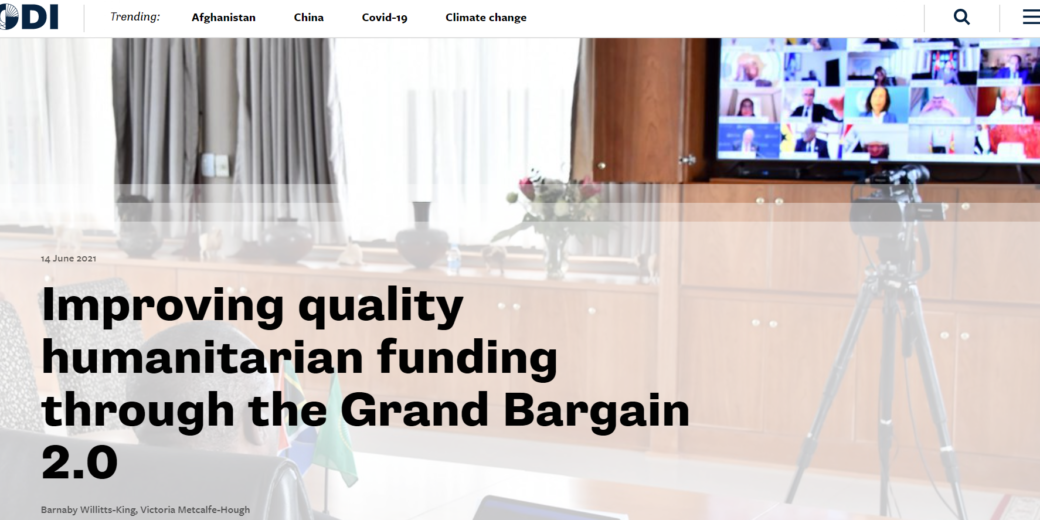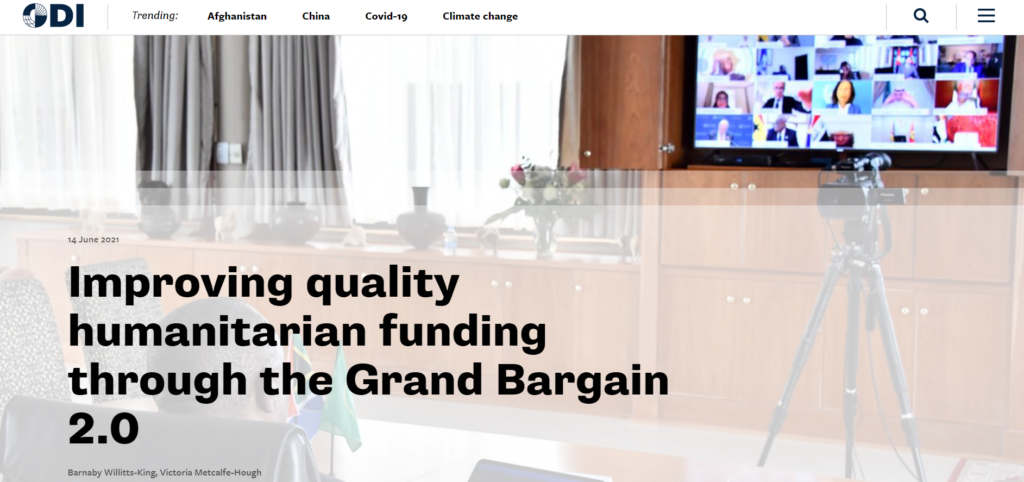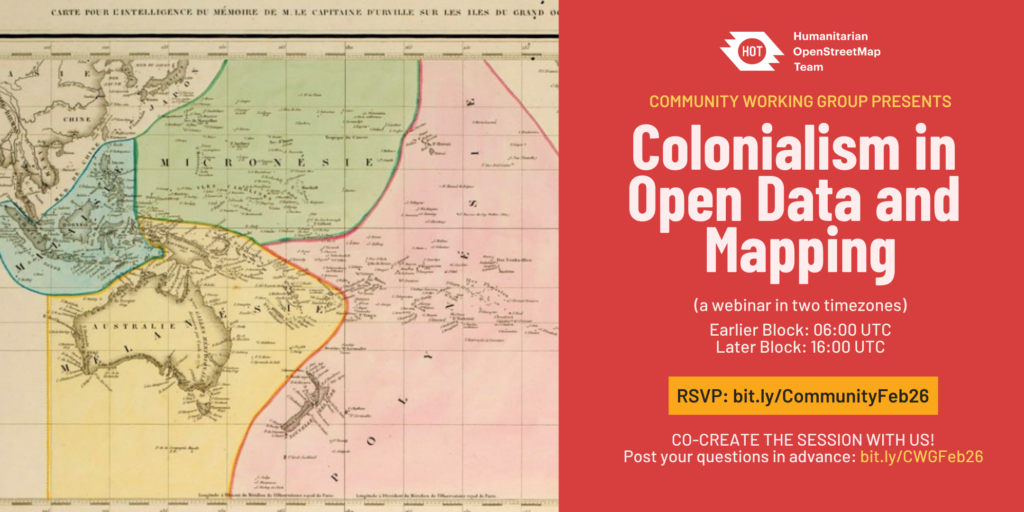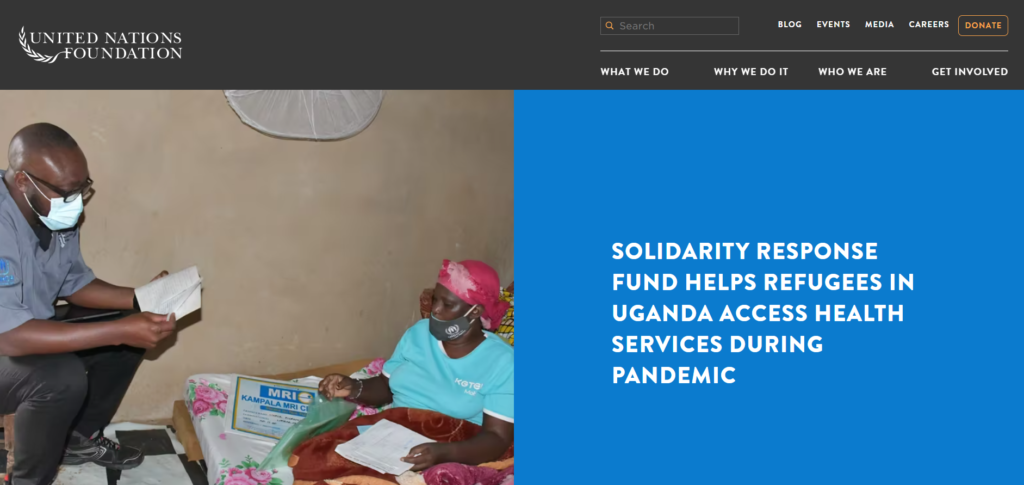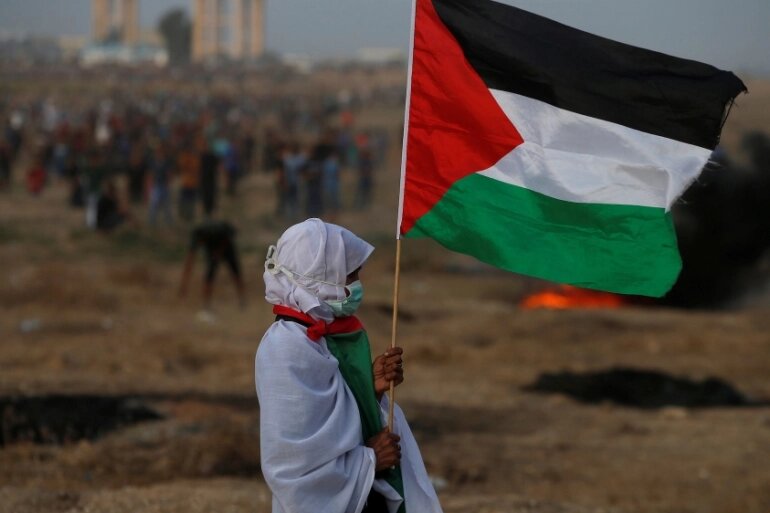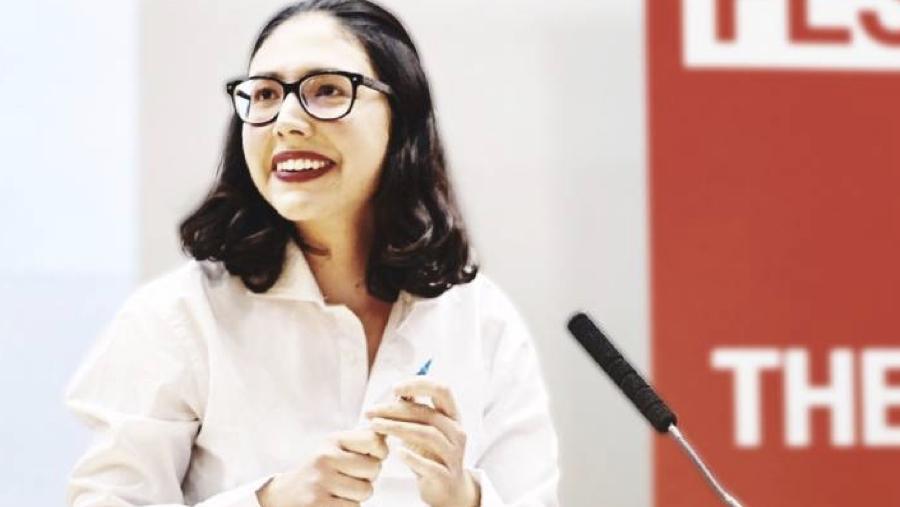Grand Bargain and more, the five of June 2021
This month an eclectic selection of topics from the sector. I am starting with one very close to my heart, improving funding through the Grand Bargain 2.0. One of the most significant debates within the Grand Bargain has a lot to do with localizing funding. Improving financing could be a game-changer to enable the Grand Bargain.
Quality funding – funding that is flexible, predictable and multi-year – is increasingly being acknowledged as critical to improving the humanitarian system. Quality funding will be one of the two ‘enabling’ priorities of the next iteration of the Grand Bargain – the GB 2.0 – to be endorsed this week at its Annual Meeting. Progress has been made, particularly over the last two years, as highlighted in analysis from the Humanitarian Policy Group (HPG) in this year’s Annual Independent Review (AIR). But despite Grand Bargain signatories’ best efforts, securing a substantive transformation of the humanitarian funding landscape is proving hugely challenging.
Read the full article here.
The Humanitarian Mapping Community Working Group organized the webinar “Colonialism in Open Data and Mapping” to examine the influence of colonialism on how the open data community collects and uses local community information.
Maps and digital data have played crucial roles in humanitarian aid, e.g., disaster response. While it can benefit local communities to add data and features to the map, humanitarian actors and mappers should take note that we are not only mapping houses, roads, and infrastructure, but also mapping the land, the oceans, and the communities who live in and are stewards of that space. To highlight this ethical challenge, HOTOSM created a platform to discuss the decolonization of open data and mapping and the effect of representation and power in humanitarian mapping.
Learn about the outcomes and highlights of their sessions in this blog and news update here.
Lockdowns during the COVID-19 pandemic mean that many people around the world are left without access to essential health services. With support from the COVID-19 Solidarity Response Fund, the UN Refugee Agency, in collaboration with partners like Africa Humanitarian Action, works to help refugees access the care they need.` This blog describes the way the fund provides support in Uganda, and supports AHA (African Humanitarian Action), partner organization of UNHCR. Supporting refugees in Kampala.
Read full blog here.
The noise never stops. The sky is filled with the buzzing of drones, echoing on and on, and with the sound of buildings collapsing as they are bombed. It’s not safe anywhere. There’s nowhere to flee to. And amidst a crumbling country and the chaos that is life in Palestine, people are trying to keep themselves upright. Rana Shubair in this article talks about life under the Israeli occupation and how parents have to stay strong as they watch their children face the hardships the occupation and grow up before their eyes.
Read the full blog here.
Ria Sen says disaster risk reduction and climate projects need to have engagement tools that recognize the financial and social barriers that keep women from being heard.
Ria is Lead Preparedness Officer with the Technology Division at the World Food Programme. She works with the Emergency Telecommunication Cluster that supports preparedness and response in crises around the world. She reflects on the converging crises of gender inequality and climate change and shares her personal views on how these overlapping issues fit into the global conversation on disaster risk reduction.
